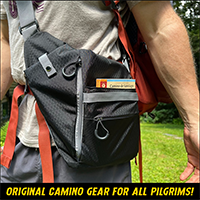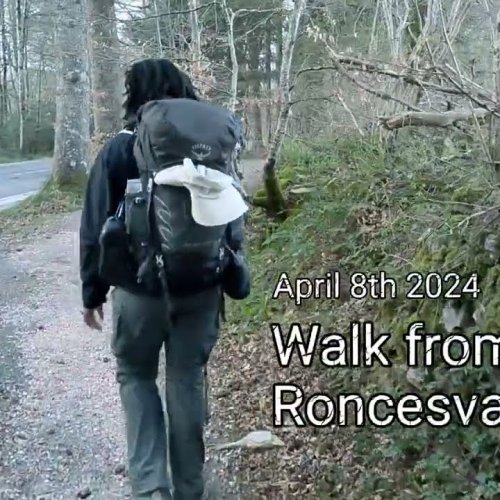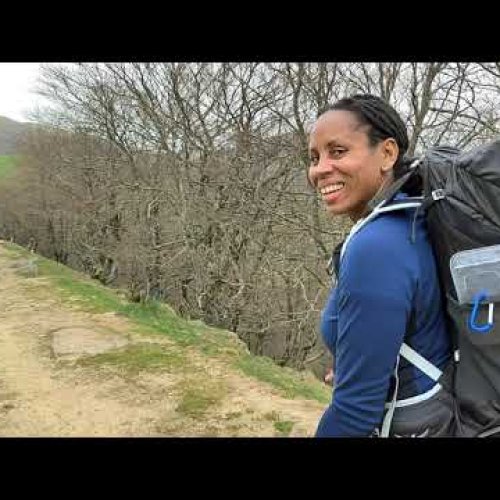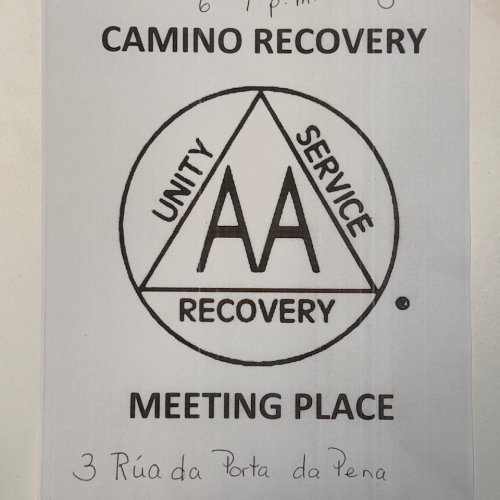- Time of past OR future Camino
- Camino Frances 2007,
Via Francigena Italy, 2008,
Jakobsweg Austria 2010,
Camino Frances 2011,
Le Puy to Lourdes 2012,
Via de la Plata 2013,
Future:
Ökumenischer (Via Regia), Germany,
Lycian Way, Turkey
Today we commonly think of pilgrimages as being journeys to places of scared, religious or spiritual importance made by people we call pilgrims.
However, the word pilgrim comes from Latin – peregrinus, a term used to describe a foreigner or stranger from another land, from abroad.
Later during the Middle Ages, the term “pilegrim” was used, this word itself derived from Old French word “pelegrin” (itself derived from “la peregrinus” or foreigner). The English used the word “peregrine” meaning a person that wanders through farm fields.
Obviously the primary of transportation in the first millennium was walking, so the term pilgrimage comes from the word "peregrinari" translated from "be on the road" or "the stranger to be in walking." Today we obviously have more choices of transportation.
The terms “peregrinus” (pilgrims) and "peregrinari" (pilgrimage) gained religious importance in the first millennium, when Romans, describing Christians who were traveling to places like Rome and later places like Santiago, used these words. These Christians were strangers from abroad (not normally Romans from the city of Rome, for example) walking along roads, and through farm fields, to a scared places like Rome and later Santiago.
Today most people from all backgrounds make pilgrimages to various places, not all places being particularly religious but maybe scared or spiritual. Most travel using other forms of transportation (car, train or plane for example) and very few actually walk there. For example, more people arrive in Santiago by plane or train than by foot.
My questions to all:
What makes the act of “walking” across Spain to Santiago a “pilgrimage” as compared to simply arriving there by say train or car?
Do you think more of yourself as a “pilgrim” when you walk to, instead of simply driving to Santiago?
However, the word pilgrim comes from Latin – peregrinus, a term used to describe a foreigner or stranger from another land, from abroad.
Later during the Middle Ages, the term “pilegrim” was used, this word itself derived from Old French word “pelegrin” (itself derived from “la peregrinus” or foreigner). The English used the word “peregrine” meaning a person that wanders through farm fields.
Obviously the primary of transportation in the first millennium was walking, so the term pilgrimage comes from the word "peregrinari" translated from "be on the road" or "the stranger to be in walking." Today we obviously have more choices of transportation.
The terms “peregrinus” (pilgrims) and "peregrinari" (pilgrimage) gained religious importance in the first millennium, when Romans, describing Christians who were traveling to places like Rome and later places like Santiago, used these words. These Christians were strangers from abroad (not normally Romans from the city of Rome, for example) walking along roads, and through farm fields, to a scared places like Rome and later Santiago.
Today most people from all backgrounds make pilgrimages to various places, not all places being particularly religious but maybe scared or spiritual. Most travel using other forms of transportation (car, train or plane for example) and very few actually walk there. For example, more people arrive in Santiago by plane or train than by foot.
My questions to all:
What makes the act of “walking” across Spain to Santiago a “pilgrimage” as compared to simply arriving there by say train or car?
Do you think more of yourself as a “pilgrim” when you walk to, instead of simply driving to Santiago?









